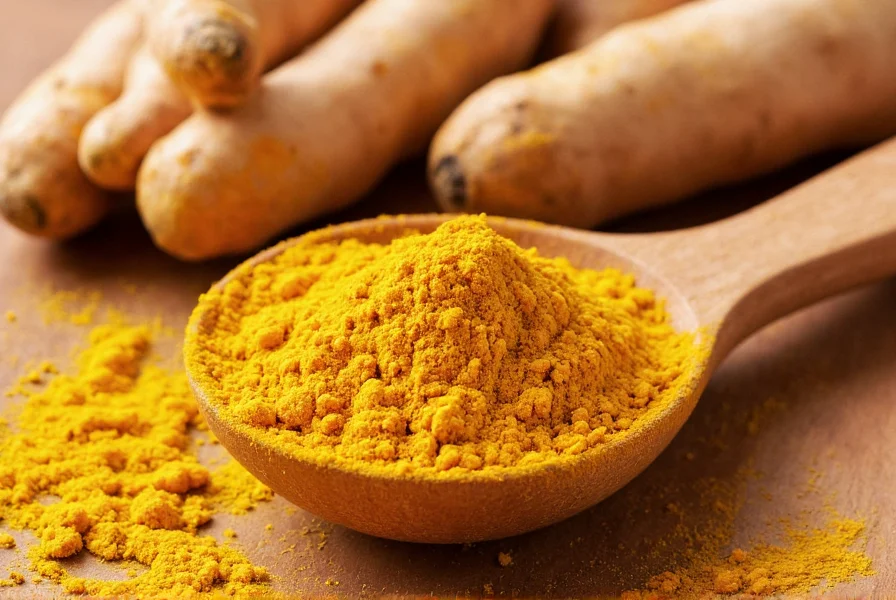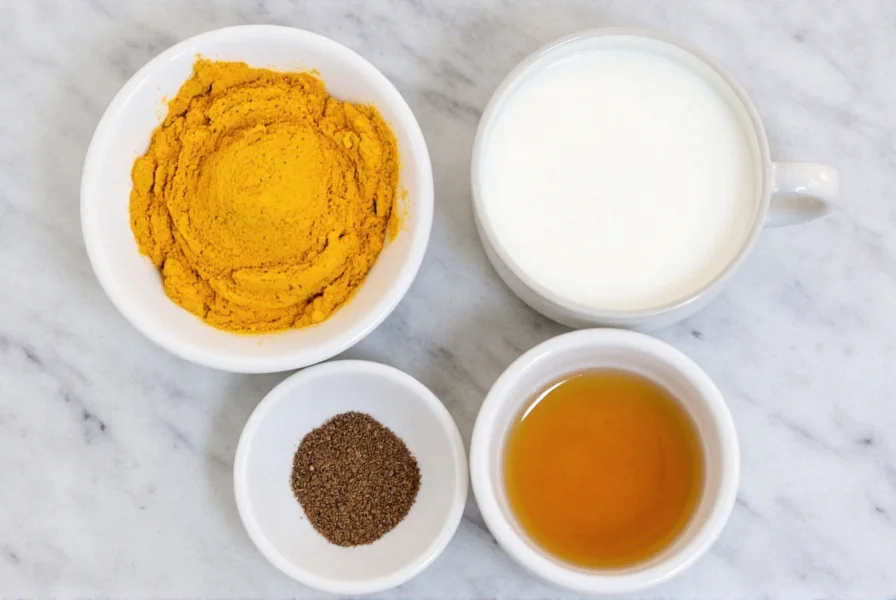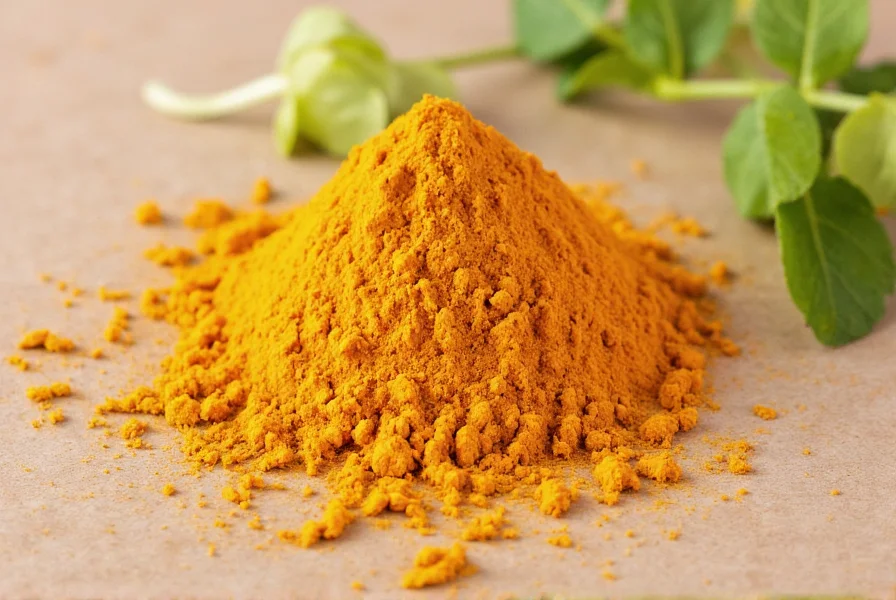Curcumin, the primary active compound in turmeric, has gained significant attention for its potential health benefits. Understanding the appropriate daily intake of turmeric powder is essential for maximizing benefits while avoiding potential side effects. Research indicates that consistent, moderate consumption delivers the most favorable outcomes for general wellness support.
Understanding Turmeric and Its Active Components
Turmeric (Curcuma longa) is a vibrant yellow spice commonly used in traditional medicine and cooking. The key bioactive compound responsible for most of turmeric's studied benefits is curcumin, which typically makes up about 2-8% of turmeric powder by weight. This means that 1 teaspoon (approximately 2 grams) of turmeric powder contains roughly 40-160mg of curcumin.
Unlike standardized curcumin supplements that often contain 95% curcuminoids, turmeric powder provides a more complete phytochemical profile including other beneficial compounds like turmerones. This natural composition may contribute to what researchers call the "entourage effect," where multiple compounds work synergistically.

Scientific Evidence on Turmeric Consumption
Multiple clinical studies have examined turmeric's effects on various health markers. A comprehensive review published in Nutrients journal analyzed 120 studies and found that daily turmeric consumption demonstrated anti-inflammatory effects at doses starting from 500mg of curcumin. However, the bioavailability of curcumin alone is relatively low without enhancement strategies.
The European Food Safety Authority (EFSA) has established an acceptable daily intake of 0-3 mg per kilogram of body weight for curcumin. For a 70kg (154 lb) adult, this translates to approximately 210mg of curcumin daily. When consuming turmeric powder rather than purified curcumin, this would equate to roughly 2.6-10.5 grams of turmeric powder, though most experts recommend staying at the lower end of this range for regular consumption.
| Form of Turmeric | Typical Daily Amount | Approximate Curcumin Content | Best Practices |
|---|---|---|---|
| Turmeric powder (culinary) | 1-3 grams (1/2-1.5 tsp) | 20-240mg | Combine with black pepper and healthy fats |
| Standardized curcumin supplements | 500-1,500mg | 450-1,425mg (95% extract) | Take with meals containing fat |
| Enhanced absorption formulations | 250-500mg | 237-475mg | Follow manufacturer instructions |
Optimizing Turmeric Absorption
One of the biggest challenges with turmeric consumption is curcumin's poor bioavailability. Research shows that combining turmeric with black pepper (which contains piperine) can increase curcumin absorption by up to 2,000%. Similarly, consuming turmeric with healthy fats like coconut oil, olive oil, or avocado enhances absorption due to curcumin's fat-soluble nature.
For those incorporating turmeric powder into their daily routine, consider these practical absorption-boosting strategies:
- Mix turmeric powder with a pinch of black pepper and healthy fat when preparing meals
- Create a "golden milk" by heating turmeric with plant-based milk and a small amount of coconut oil
- Add turmeric to salad dressings containing olive oil
- Combine with vitamin C-rich foods like lemon juice to potentially enhance stability

Safety Considerations and Potential Interactions
While turmeric is generally recognized as safe (GRAS) by the FDA when used as a food ingredient, higher therapeutic doses require more caution. The most common side effects of excessive turmeric consumption include gastrointestinal discomfort, acid reflux, and in rare cases, increased bleeding risk.
Individuals taking certain medications should exercise particular caution. Turmeric may interact with blood thinners like warfarin, diabetes medications, and certain chemotherapy drugs. Those with gallbladder issues should consult their healthcare provider before regular turmeric consumption, as it may stimulate bile production.
Pregnant and breastfeeding women should limit turmeric to culinary amounts rather than therapeutic doses, as research on higher doses during pregnancy remains limited. The German Commission E, which evaluates herbal medicines, recommends against medicinal turmeric use during pregnancy.
Practical Ways to Incorporate Turmeric Into Your Daily Routine
Integrating the recommended daily dose of turmeric powder into your diet can be both simple and delicious. Start with smaller amounts (1/4 to 1/2 teaspoon) and gradually increase to assess tolerance. Here are some practical approaches for consistent daily consumption:
- Add to morning smoothies: Blend 1/2 teaspoon turmeric powder with banana, spinach, almond milk, and a pinch of black pepper
- Stir into soups and stews: Add toward the end of cooking to preserve active compounds
- Create turmeric-infused rice or grains: Add powder during cooking with complementary spices
- Make salad dressings: Whisk with olive oil, lemon juice, and a touch of honey
- Prepare golden milk: Heat with plant-based milk, black pepper, and a small amount of coconut oil
Consistency matters more than occasional high doses when it comes to experiencing potential benefits from turmeric. Regular daily consumption within recommended limits appears more effective than sporadic larger doses based on current research.
When to Consult a Healthcare Professional
Before establishing a regular turmeric regimen, certain individuals should consult with a healthcare provider. This includes people with bleeding disorders, those scheduled for surgery within the next two weeks, individuals with hormone-sensitive conditions, and anyone taking prescription medications that might interact with turmeric.
Your healthcare provider can help determine if turmeric is appropriate for your specific health situation and advise on the optimal daily amount of turmeric powder based on your individual health profile. They can also monitor for potential interactions with existing medications or conditions.
Conclusion
The appropriate daily dose of turmeric powder balances potential benefits with safety considerations. For most healthy adults, 1-3 grams (1/2 to 1.5 teaspoons) of turmeric powder daily provides a reasonable amount of curcumin while minimizing potential side effects. Remember that consistent, moderate consumption combined with absorption-enhancing strategies delivers better results than occasional high doses.
As with any dietary change, listen to your body and adjust accordingly. Turmeric works best as part of a balanced, varied diet rather than as a standalone solution. When incorporated thoughtfully into your daily routine, turmeric powder can be a valuable addition to a health-conscious lifestyle.











 浙公网安备
33010002000092号
浙公网安备
33010002000092号 浙B2-20120091-4
浙B2-20120091-4